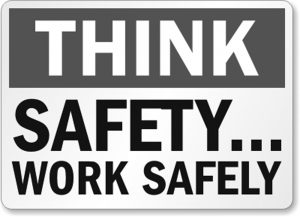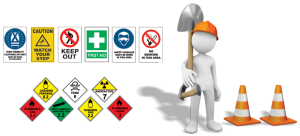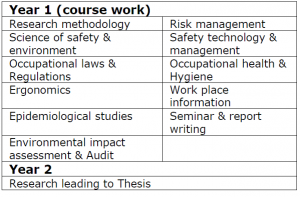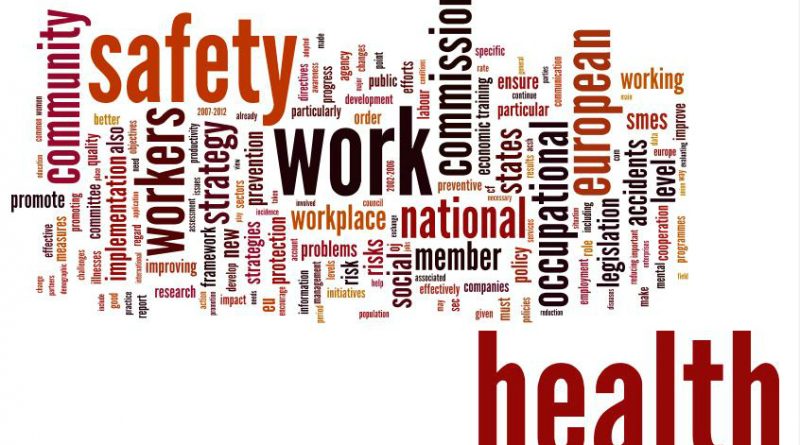Course of the Week; MSc. Occupational Safety and Health
You have landed that dream job you’ve always wanted, whether it’s a field job or office job. Maybe you are the boss, or the employee. What’s important is that you have the job. Or maybe you are still in the process of looking for a job. You are equipped with the skills that your potential job requires. Have you ever thought that’s not enough? That having a job is not enough? Have you given thought to making sure you actually execute your job safely and get back to work the next day? No matter the job you are doing, in whichever field, your health and safety comes first. In a relationship between the employee and the job, there’s only one constant variable, the job. You can die today and the work will continue, through a new employee. So how do you ensure that on top of your area of expertise, you are equipped with health and safety tips in your field?
 As defined by the World Health Organization (WHO), occupational health deals with all aspects of health and safety in the workplace and has a strong focus on primary prevention of hazards. Health on the other hand is defined as a state of complete physical, mental and social well-being and not merely the absence of disease or infirmity. Occupational health is a multidisciplinary field concerned with enabling an individual to undertake their occupation, in a way that causes least harm to their health.
As defined by the World Health Organization (WHO), occupational health deals with all aspects of health and safety in the workplace and has a strong focus on primary prevention of hazards. Health on the other hand is defined as a state of complete physical, mental and social well-being and not merely the absence of disease or infirmity. Occupational health is a multidisciplinary field concerned with enabling an individual to undertake their occupation, in a way that causes least harm to their health.
Since the year 1950, the International Labour Organization (ILO) and the World Health Organization have shared a common definition of occupational health. Adopted by the joint ILO/WHO Committee on Occupational Health at its first session in 1950 and revised at its twelfth session in 1995, it is premised on these tenets;
“The main focus in occupational health is on three different objectives: (i) the maintenance and promotion of workers’ health and working capacity; (ii) the improvement of working environment and work to become conducive to safety and health and (iii) development of work organizations and working cultures in a direction which supports health and safety at work and in doing so also promotes a positive social climate and smooth operation and may enhance productivity of the undertakings. The concept of working culture is intended in this context to mean a reflection of the essential value systems adopted by the undertaking concerned. Such a culture is reflected in practice in the managerial systems, personnel policy, principles for participation, training policies and quality management of the undertaking.”
It is in recognition of the significance of Occupational Safety and Health (OSH) that Jomo Kenyatta University of Agriculture and Technology decided to offer a Masters program in the area. Due to the multidisciplinary approach of the program, it is relevant to students or people working in different fields and disciplines. The program is therefore relevant to anyone in the Construction industry, Healthcare, Architecture, Agriculture, Mining, Engineering, Media or any other discipline. The program is offered in the University’s Institute of Energy and Environmental Technology (IEET)
 Entry Requirements
Entry Requirements
- A Bachelors Degree Second Class (Upper Division) in Medical, Engineering, Agricultural and Applied/Biological/ Physical or Social Sciences from JKUAT or any other University recognized by JKUAT Senate.
- A BSc. Degree Second Class (lower division) as in subjects listed above with a minimum working experience of 3 years in a related field/or experience in terms of publication in relevant field
- A BSc. Degree with additional Post Graduate Diploma in OSH with a minimum Credit from JKUAT
- Any other equivalent qualifications recognized by JKUAT Senate.





